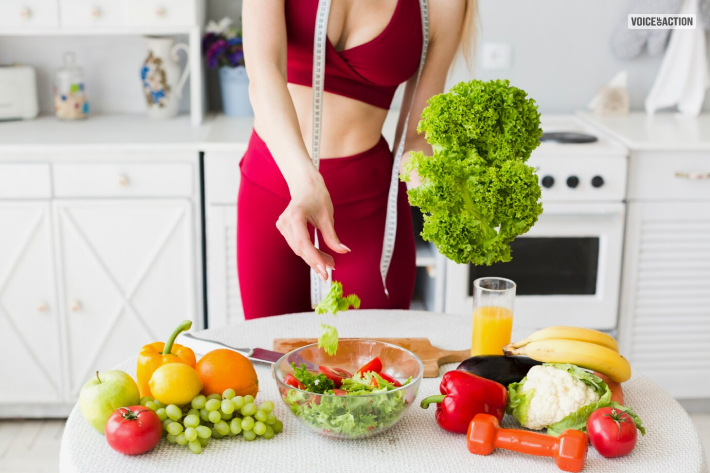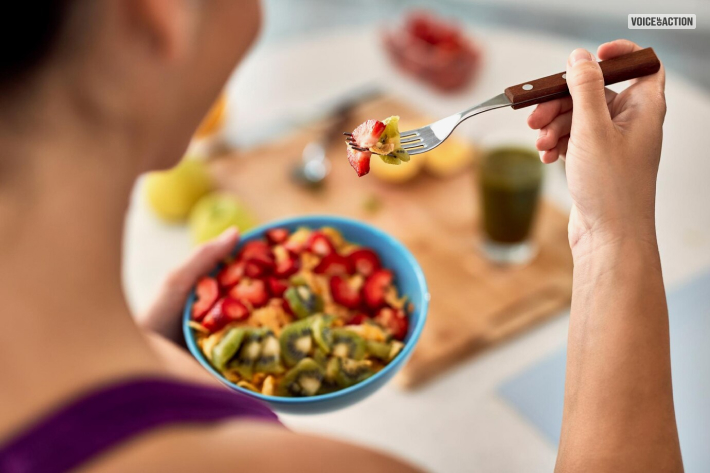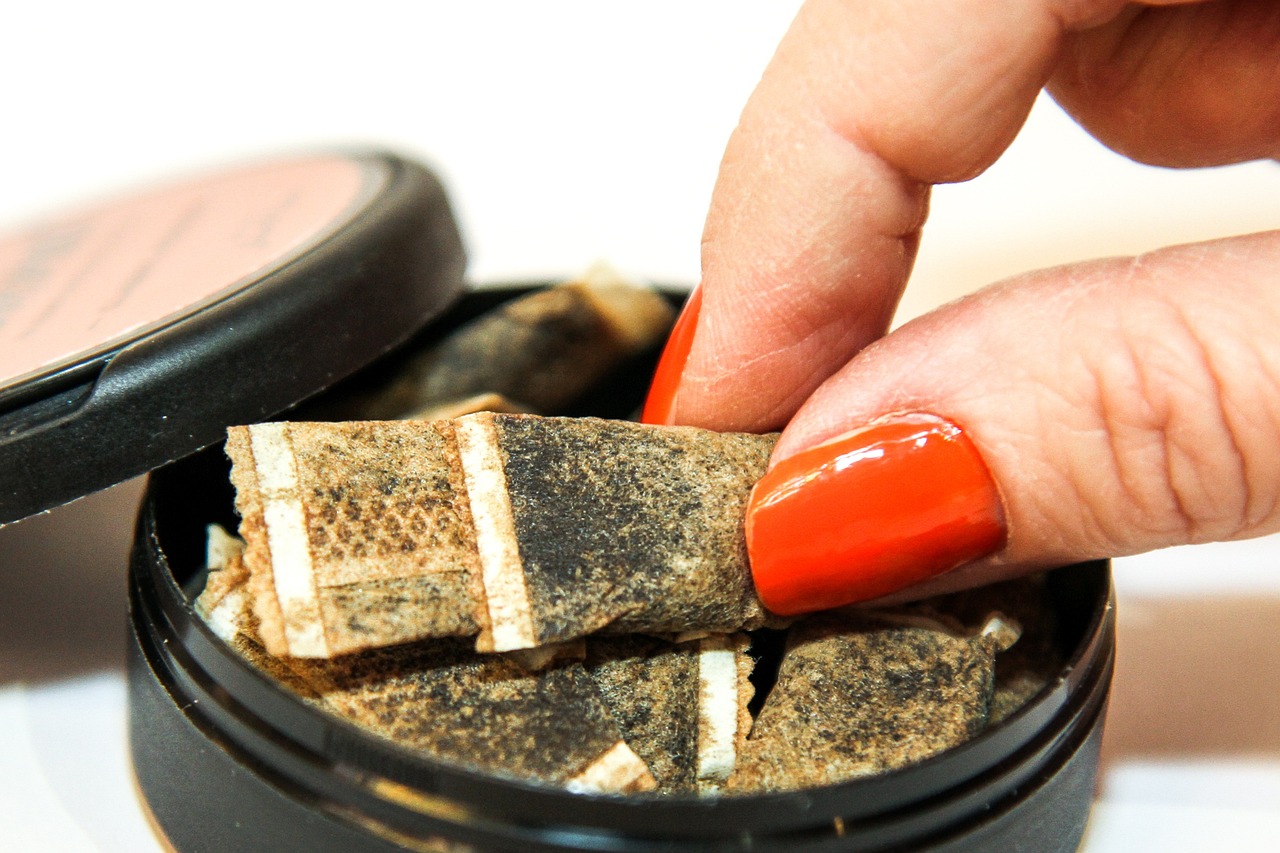How To Build Muscle On A Vegan Diet – A Complete 101 Guide

Do you often get tired of the beat-to-death stereotype that vegans don’t usually build muscle mass? Alright, now be prepared to astonish all those who do not believe! This is your complete guide to how to build muscle on a vegan diet.
This time, we will be unmasking myths and becoming more knowledgeable about vegan muscle building especially if you are planning to understand how to become a vegan better.
Buckle up for an exciting ride that will unveil a variety of nourishing vegan foods. Plus, powerful workout regimens and precious tips to achieve rapid success in gaining strength. This is where you unveil your secret identity as a vegan and muscle-building machine!
Veganism & how to build muscle on a vegan diet

The idea of bulking up for a vegan is often perceived to be mythical to some. Mainstream bodybuilding diets usually use animal-based foods such as chicken, beef, or eggs that are high in proteins. But the start of plant-based and vegan lifestyles is forever changing.
So, if you are wondering how to build muscle on a vegan diet –
It is worth noting that turning vegan doesn’t necessarily mean one is healthy. Many people believe that decreased body mass and better health can be attained by removing animal products from their diet. It is not necessarily like that. In a way, even junk food and other unhealthy eatables are considered vegan-friendly.
The answer to whether it’s possible to build lean muscle mass still while following a completely vegan is…
Possible!
A vegan diet that you properly structure & execute can meet the demands for muscle building in terms of all the nutrients required. This comprehensive guide will review the necessary measures required to develop muscle or body on a vegetarian diet.
How to build muscle on a vegan diet – Veganism and its benefits

Veganism has specific rules about eating foods that haven’t been processed, like fruits, vegetables, grains, legumes, nuts, and seeds. These foods have powerful components such as protein, carbohydrates, healthy fats, vitamins, minerals, and fibers that help increase muscle mass. Contrary to the widespread opinion, vegans get sufficient proteins from different vegetable sources – like tofu, tempeh, lentils, legumes, etc.
Low Saturated Fat
It is also noteworthy that vegan diets contain relatively lower amounts of saturated fats than non-vegan diets. It is as good for cardiovascular defense as weight loss because it helps reduce body fat percentage.
High in Micronutrients
If you are worrying that a vegan diet won’t be enough. Ending to you asking how to build muscle on a vegan diet, remember –
A vegan diet is high in micronutrients, which is another benefit when it is involved in muscle building. As well as providing vitamins and minerals that are essential to optimize physical performance, plant-based foods are rich in other items.
For example, iron (which contributes to oxygen transport), zinc (which promotes hormone production), and magnesium (which helps in energy production).
Higher Antioxidants
Conversely, Vegans ingest higher antioxidant levels than non-vegans because they consume antioxidant fruits.
And vegetables. Antioxidants reduce oxidative damage resulting from working out, with the help of which muscles recover faster after a strenuous workout.
Better Mental Health
Aside from those physical benefits, veganism is equally important for better mental health. Yes, consuming wholesome foods that nourish your body and mind.
The already low rates of depression and anxiety among those who choose a vegan is indeed a great influence. The outcome of your muscle-building goals also depends on your motivation level.
Misconceptions about building muscle on a vegan diet

Alongside answering how to build muscle on a vegan diet, it is important to understand the misconceptions.
Veganism is gaining more and more popularity, and people are increasingly turning to plant-based diets. However, many myths and misconceptions about muscles and vegan diets remain. Therefore, some believe that to build muscles, one must consume only meat.
While others try to convince that vegans have a limited number of protein sources available. Here, we will deal with the most typical myths about getting muscles under a vegan diet and prove them with scientific arguments.
Misconception 1: You Cannot Develop a Lean Muscle Mass Without Ingesting Animal Proteins.
One of the most common myths about obtaining sufficient protein from plant-based is that it is not possible. This is typically the point where people think that you can never gain muscle without consuming animal products.
But this is the biggest fallacy!
Plant-based proteins are available in a variety and can supply all the essential amino acids necessary for muscle development. Protein foods, e.g., tofu, tempeh, beans, lentils, quinoa, and nuts, are good vegan protein sources. Further, one can easily meet one’s daily protein intake by consuming adequate portions of high-protein food. All the while, keeping your staples like bread and vegetables is also important.
Also, experiments show a lack of variability between people on a vegetarian diet versus an omnivorous one with protein intact. This translates to the fact that you may only need to consume enough high-quality plant-based proteins. For example, about 0.8-1 gram per body kilogram every day to build some lean muscle mass.
Misconception 2: Vegan options for protein are limited due to this reason.
When anyone talks about building muscle on a vegan diet, this is a misconception they will hear.
Among the misconceptions about vegans building muscles is that they have limited plant protein to omnivores. It is true that most complete protein sources are animal products, while plant-based proteins can provide all the essential amino acids through a combination of food.
For instance, combine cereals and legumes (like rice and beans) to create a complete amino acid array, like what you get from eating animal proteins. Also, using plant-based protein powders such as pea, hemp, or rice may ensure you provide the right protein ratio and a full range of amino acids needed for muscle growth.
Understanding the Basics of Muscle Building

Strictly speaking, many people who hope to boost their health and shape their bodies are muscle builders. Nonetheless, it is common that newbies do not understand muscle-building concepts when they are on a vegan diet. In this section, we will explain the fundamental concepts of muscle-building.
During hypertrophy, the size of your muscle fibers increases, leading to muscle growth. This process mainly comes down to several factors. A progressive overload implies gradually raising the resistance or intensity of your muscles against which you are working through time. You can do this through weightlifting, bodyweight, or other forms of resistance training.
With muscles, nutrient intake plays a fundamental role in muscle growth. As muscles need a proper supply of nutrients to repair and grow after you break them during exercise. Vegans may face the dilemma of meeting their body’s daily protein requirement without consuming animal products like meat and dairy. On the flip side, vegetable sources of protein also include soybeans, legumes, peanuts, seeds, tofu, tempeh, and whole grains. Strategically consuming various meals to provide enough proteins for muscle building.
Carbs also play a role
Regarding protein intake, it is also important to ensure our carbs intake is sufficient for energy during workouts and to get enough healthy fat for hormone synthesis. It is impossible to build big muscles if the body does not have enough fuel (calories) during intense physical exercises. This is why it is important to ensure your calorie intake exceeds your calorie burn (eating more calories than you burn) when bulking on a vegan diet.
Along with rest and recovery, these two processes are of the utmost importance when it comes to the growth of muscles. While working out/resting, an athlete’s fatigued muscles repair themselves and become bigger and stronger.
Most people need about 7-9 hours of sleep each night, but the amount of sleep needed can differ from one person to another. Resting allows your muscles to take a break and adjust to the stress of exercise, consequently leading to muscle growth.
Importance of protein in muscle building

Protein, a dietary macronutrient, is a significant element of a muscle-building diet and is mainly responsible for the repair and construction of muscles.
At the same time, making muscles vegan, one of the most important questions people ask is whether they are getting enough protein from plant-based sources. But, with some planning and knowledge, you can easily get the protein you need to say daily.
Amino Acid Chain
First, we will clarify why protein is indispensable for muscle building. The muscles in our organisms mostly consist of proteins that are a chain of amino acids.
Our muscles experience micro-tears and daily damage during workouts resulting from the stress placed on them. After the workout, the body uses the damaged fibers to fix and build them back up to be bigger and stronger through muscle growth.
Recover Muscle Loss
Enough daily consumption of protein supports muscle gain and helps recover muscle loss. Engaged in the catabolism process, our body may use its existing muscles for stochastic purposes. The outcome is the loss of muscle mass, strength, and the general performance of athletic activity.
How Much Protein?
On average, exercising individuals looking for muscle building should get approximately 0.8-1 grams of protein per pound of body weight in their diet daily.
Research revealed that vegans need a slightly higher daily protein intake when compared to those who are not vegans due to differences in protein absorption rates in the plant world. (Source). Therefore, vegans must have at least 1g of protein daily for every pound of weight.
In case we are building muscles as vegans, it is important to take complete proteins of high quality. This sends all the nine essential amino acids that our bodies cannot produce by themselves.
For example, beans and legumes such as chickpeas and lentils; whole grains including quinoa and brown rice; nuts and seeds such as almonds and chia seeds; tofu and tempeh and edamame are what make it up.
Additionally, the protein consumption rate is crucial, and the timing and distribution of protein intake throughout the day significantly influence muscle building.
It is highly important to distribute your protein consumption across the meals and snacks and not rely only on one big serving at dinners. Studies have shown that the even distribution of Protein intake leads to increased muscle synthesis and retention instead of consuming it in one sitting (Moore, Parks, & Tang, 2013). (Source)
Calculating your daily protein intake

How to build muscle on a vegan diet? Start calculating your protein intake for better muscle building.
Regarding being a vegan, it can be technical to identify how much protein you should build each day and guarantee that you are meeting the daily requirements.
The advised protein intake is, for adults, 0.8 grams per kilogram weight of their bodies. For people wanting to accumulate muscles as body mass, this can go up to 1-1.2 grams per kilogram.
Step 1: Decide How Much You Weigh
The first thing to do to estimate your daily protein intake is to measure your weight in kilos (kg). If you are unsure about your body weight, go for a weighing scale or consult a medical expert.
Step 2: Make sure that you have a daily protein intake goal
According to the protein intake range, you should stand from (discussed earlier), set your protein eating target that’s better for you – maintaining or improving muscle mass. On the other hand, considering a person who weighs 70 kg and wants to build muscle, multiply 70 kilograms by 1-1.2 grams of protein per kilogram (70-84 grams). This implies that for your daily protein needs, you should intake 70 to 84 grams.
Step 3: Find Your Proteins Intake
Being a vegan requires selecting protein-rich plant-based sources (such as tofu, tempeh, lentils, beans, nuts, and seeds) to meet the day’s protein needs while adhering to their weight as their protein content.
Protein Source Serving size Protein content(grams)
- Tofu ½ cup 10g
- Tempeh ¾ cup 20g
- Lentils ½ cup 9g
- Beans 1 cup 15-20g
- Nuts (almonds, cashews) ¼ cup 6-8g
- Seeds (quinoa, chia) 2 tbsp 5-8g
Step 4: Design Your Day’s Menu
Once you have uncovered the protein content of each protein-containing food option, divide your meals among these choices to get enough protein. undefined
Breakfast: Tofu scramble with spinach and avocado on whole-grain toast (18g)
- Snack: A handful of almonds (7g)
- Lunch: Lentil and vegetable soup (9g)
- Snack: Apple slices with almond butter (6g)
- Dinner: Quinoa stir-fry with tempeh and vegetables (20g)
- Total protein intake for the day = 60 g.
Step 5: Protein supplementation be leveraged soundly
Vegan protein powders and protein bars can be good additions to your diet to cover the daily protein needs if you find it problematic to achieve these from food sources only. However, consider those products with minimal added sugars made of quality ingredients your best.
It is important to remember that meeting each person’s needs for proteins can be based on age group, gender, type of activity, and overall health.
For good health and sound medical advice, I recommend that you consult a healthcare professional or a registered dietitian to provide personalized recommendations of how much protein you should be eating daily.
Hopefully, we can give you a better idea on how to build muscle on a vegan diet? If you have anything new to add in the comment section below!


























